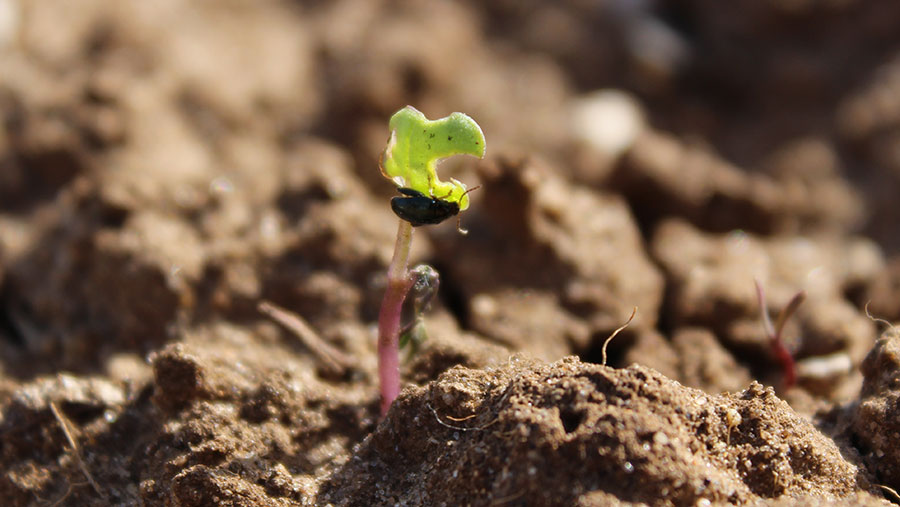High pyrethroid resistance found in cabbage stem flea beetle
 © RBI
© RBI Significant levels of cabbage stem flea beetle resistance to pryrethroid insecticides have been detected again this year, with the worst cases found in south-east England.
Scientists at Rothamsted Research have monitored resistance levels to lambda-cyhalothrin in adult flea beetle samples sent in by growers and agronomists from 73 sites across England.
See also: Shocking contrast in neonic-treated and untreated oilseed rape
Steve Foster, who is jointly running the research, said: “Growers who do not have access to neonicotinoid-treated seed are likely to encounter problems controlling cabbage stem flea beetles in areas where there is a high frequency of pyrethroid resistance.”
For this autumn, a short-term emergency approval was granted by the Chemicals Regulation Directorate for Certis’ insecticide InSyst (acetamiprid) to help growers control cabbage stem flea beetle in oilseed rape.
Rothamsted Research map showing pyrethroid resistance

Last year 40% of oilseed rape crops in Hampshire, Bedfordshire and Hertfordshire suffered damage levels at or above treatment thresholds.
Samples sent for testing at Rothamsted Research in 2014 contained beetles that were deemed “strongly resistant” to pyrethroids.
As a result, a follow up survey for resistance is being carried out this year and researchers are appealing for more growers to send in flea beetle samples.
For more details visit the Rothamsted Research website.

